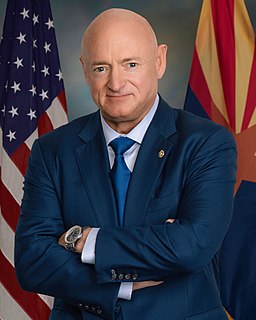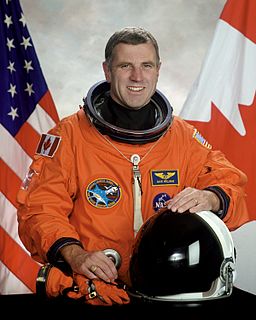A Quote by Neil deGrasse Tyson
There are countless space activities that would be no less exciting than the moon missions were, I have no doubt. The search for life on Mars, for example.
Related Quotes
We will eventually build space science labs and hotels, prodding the capability for missions beyond the orbit of the Earth. Our space-hotel guests will be able to take breath-taking excursions, flying a couple of hundred feet above the Moon's surface in small two-man spaceships. In time, we will launch missions to Mars and beyond.
People say, oh we just need charismatic leaders to continue on to Mars. Now we've gone to the moon, of course Mars is next. No. Mars was never, of course, next. It is next if you think we went to the moon because we're explorers, but if you know we went to the moon because we were at war then we're never going to Mars. There's no military reason to do it, to justify the expenditure.
By 2025 we expect new spacecraft designed for long journeys to allow us to begin the first ever crewed missions beyond the Moon into deep space. So we'll start by sending astronauts to an asteroid for the first time in history. By the mid-2030s I believe we can send humans to orbit Mars and return them safely to Earth. And a landing on Mars will follow and I expect to be around in see it.
Astronauts will remain the explorers, the pioneers-the first to go back to moon and on to Mars. But I think it's really important to make space space available to as many people as we can. It's going to be a while before we can launch people for less than $20 million a ticket. But that day is coming.
One of the things that's really exciting from my perspective is that Canada is one of the major spacefaring nations. The list of our achievements is profound and significant, and it's not just in robotics, it's also in the life-sciences research experiments that take place on board and other space-science experiments. I'd love to see Canada go from being a major spacefaring nation in low-Earth-orbit missions to those beyond, making sure we're part of those missions to Mars - not just from a technology perspective, but sending humans into beyond-Earth orbit.
NEEMO missions are a challenging and exciting aspect of astronaut training. The research we conduct during those missions allows us to test new technologies and exploration concepts in conditions similar to the ones we'll experience in space. They are a great opportunity to help me expand my knowledge and develop new tools for future space exploration.
The Moon is a ball of left-over debris from a cosmic collision that took place more than four billion years ago. A Mars-sized asteroid - one of the countless planetesimals that were frantically churning our solar system into existence - hit the infant Earth, bequeathing it a very large natural satellite.
To send humans back to the moon would not be advancing. It would be more than 50 years after the first moon landing when we got there, and we'd probably be welcomed by the Chinese. But we should return to the moon without astronauts and build, with robots, an international lunar base, so that we know how to build a base on Mars robotically.

































